SEASON 01 | EPISODE 07
Can They Be Saved?
Andrea delves deep into her questions around the psychopathology of Munchausen by Proxy perpetrators. Floored by the similarities in the many cases she’s researched: she talks to two of the world’s foremost experts on the disorder–Dr. Marc Feldman and Dr. Mary Sanders–about the characteristics, warning signs, and causes of the disorder that has upended the lives of so many people Andrea has spoken to throughout the course of the podcast. Why would a mother ever do this? What do they get from it? And most importantly, what could be done to stop them? Is it possible for someone who does these things to get treatment?
Host Andrea Dunlop:
https://www.andreadunlop.net
For behind-the-scenes photos:
https://www.instagram.com/andreadunlop/
Support the show and get exclusive bonus content:
https://patreon.com/NobodyShouldBelieveMe
For information and resources:
https://www.munchausensupport.com
The American Professional Society on the Abuse of Children’s MBP Practice Guidelines can be downloaded here.

Andrea: [00:00:00] Hi, I’m Andrea Dunlop. Thank you so much for listening to Nobody Should Believe me. If you would like to support the show, the best way to do that is to join our Patreon. We have amazing content up there now, including exclusive Postscript episodes from me, um, that are recaps of each episode of season one.
Andrea: We also have extended interviews with our incredible experts like Dr. Mark Feldman, Dr. Mary Sanders, and Dr. Jamie Kaufman. We are gonna be adding a lot more to that Patreon community as we get ready for season two, so we would love to see you over there. We are really excited to bring you a second season of this podcast and I’m gonna tell you a little bit more about what we are working on for that in the next episode.
Andrea: If monetary support is not an option for you right now, it’s also incredibly helpful to us If you rate and review the show and share it with your friends and family on social media or wherever you are talking to them. I also wanted to thank you for all of the amazing feedback and very interesting questions we’ve gotten about this [00:01:00] show.
Andrea: We are going to be answering some of those in an upcoming bonus episode, so please know that if you have anything to say or ask, please feel free to get in touch. Um, best way is to reach me on social media, and I’m at Andrea Dunlop on Instagram. And we have some exciting news. Our final episode, episode eight, which is my conversation with Hope YouBar is going to be coming to you next week, one day early.
Andrea: We decided to release this episode on Wednesday so that you can all listen to it on your way to wherever you’re going for Thanksgiving. Nobody should believe me is a production of large media. That’s L a R j Media. Before we begin a quick warning that in this show we discuss child abuse and this content may be difficult for some listeners.
Andrea: If you or anyone you know is a victim or survivor of medical child abuse, please go to munchhausen support.com to connect with professionals who can help.
Andrea: People believe their eyes. [00:02:00] That’s something that actually is so central to this whole issue and to people that experience this, is that we do believe the people that we love when they’re telling us something. I am Andrea Dunlop, and this is Nobody Should believe me. At the beginning of this process of doing this podcast, I think I’d convinced myself that I had put the personal stake that I have in this issue behind me in a way that I’ve now discovered maybe I have not.
Andrea: It, despite my best efforts to completely detach from my sister, there is still a small part of me that can’t help but hope that at some point in the future there might be some sort of reconciliation. As I was going back and forth with hope as I was talking to her [00:03:00] family and sort of reliving all of these emotions that I had kind of talked away for a long time, I almost feel a little foolish that I would have any hope for a reconciliation because of everything that I know that person is still, she’s still my sister, but I also sort of don’t feel that way.
Andrea: That person sort of is still physically out there, but then in a very meaningful way is not so much of what you believed that person to be and who you believe that person to be is shown to be an illusion because of the lies that they have told you and I have needed to no longer be naive. I thought I had the answer of whether or not people who do have fictitious disorder imposed on another to whether or not they could be treated, and that seemed impossible.
Andrea: And then the deeper I got into this, it seems more possible. I really wanted to go deep on this topic, in particular with [00:04:00] Dr. Mark Feldman and Dr. Mary Sanders. When people ask you, is munch housen by proxy, a mental illness, how do you answer that question?
Dr. Marc Feldman: I tell them, munch, housen by proxy is not a mental illness in itself.
Dr. Marc Feldman: It’s a form of maltreatment, usually of children. But I also am quick to point out that the American Psychiatric Association says that it’s always associated. With a mental illness, they call factitious disorder imposed on another, but I don’t wanna lose sight. At any time of the fact that it’s a form of maltreatment, because we have a responsibility as healthcare professionals to make reports to Child Protective Services and the police when we see it play out.
Dr. Marc Feldman: We wouldn’t do that if it were just a mental illness, but we must do that when it involves the exploitation of children
Andrea: when it comes to the [00:05:00] underlying. Psychiatric disorder, so factious disorder imposed on another with what perpetrators get out of it, why someone would do this.
Dr. Marc Feldman: That’s a critical point in munchhouse and phenomena.
Dr. Marc Feldman: Uh, the person is after emotional gratification. Uh, attention sympathy, care support that they feel unable to get in any other way. Uh, sometimes they’re a bit desperate in their personal lives, and certainly harming a child, whether it’s yours or somebody else’s, is an act of desperation.
Andrea: And when it comes down to a possible cause for it.
Dr. Marc Feldman: We don’t know tons about the causes because the perpetrators tend not to make themselves available for study. The denial is really pervasive and persistent. In these cases and the perpetrators [00:06:00] will in most cases never admit to what they’ve done. And if that happens, you have no basis for exploring the behavior with them.
Dr. Marc Feldman: That said, it does seem as if many of these perpetrators of a history of making themselves sick, that is a, have a history of factitious disorder and post on self or munchhausen syndrome, those are fairly synonymous. They also seem to have personality disorders that are very severe. That is, they have long-term maladaptive, unhealthy ways of trying to get their needs met.
Andrea: We’ve heard a lot of common themes as we’ve been talking to people about these stories in terms of the behavior patterns. One of them you mentioned, which is the fact disorder on imposed on self. So just a long history of inexplicable medical ailments. The other things that have come up a lot are various kinds of fraud, financial, and otherwise, and then infidelity.
Andrea: Would [00:07:00] the personality disorder element of. Of this, would that kind of account for some of those other behaviors that don’t seem necessarily related to factious disorders but are sort of patterns we’ve really been recognizing?
Dr. Marc Feldman: Uh, a common underpinning is deceptiveness and impulsivity and poor judgment, and that kind of person is likely to engage in all the kinds of behaviors we’re talking about now.
Dr. Marc Feldman: Uh, whether it’s infidelity, lying about aspects of their lives and may not even involve illness in, in any way. When it’s severe, we call it pseudo fantastica, which is a Latin term for pathological line where the person mixes some truth with fiction, which makes for the best lie in a sense. When we see that, we know that we’ve got an extraordinarily difficult uphill battle to fight to get them put [00:08:00] knowledge that anything they said is false.
Andrea: Another pattern that we’ve seen and that I’ve seen just in reading about many different cases, is that many of these babies who end up becoming victims of medical child abuse are born premature, and in some cases severely premature. And so any baby who’s born premature is going to have some issues in the very beginning.
Andrea: You did actually hear from a couple of perpetrators and talk to a couple of perpetrators for your most recent book, and there was a woman that you spoke to for your book who talked about exactly how she created the scenario of having a premature birth, and that has just something that has really stuck with me.
Dr. Marc Feldman: You are right that a common factor among some perpetrators, in fact many, is that there have been obstetrical complications that led perhaps to a failure of bonding [00:09:00] early on. And so sometimes people have said, there’s no way this is gonna be much ASM by proxy because because the mother has five children.
Dr. Marc Feldman: And it’s only the fourth child or the fifth child that anything has happened with. And I look at their backgrounds and find that that fourth or fifth child may well have been one of the examples in which bonding didn’t really occur successfully, or the child is perceived as imperfect in some way. And whether it’s conscious or unconscious, that child gets victimized by a mother who is dissatisfied.
Dr. Marc Feldman: At some level with the way things have turned out with that particular child. In other cases, it’s every child in the family.
Andrea: I wanna be really clear here that though we’re talking about one. Peace of this behavior one spot in the timeline of these cases, we are not by any means [00:10:00] indicating that people who have complications with their pregnancies or who have premature babies are in some way more at risk for becoming perpetrators.
Andrea: They’re absolutely not. This is a case of. We see a high percentage of muha and by proxy perpetrators who do this thing, not that there’s a higher percentage of people who have this in their lives, become these perpetrators. This is yet another scenario that perpetrators who are already midstream with this behavior will exploit that set of circumstances for their own game.
Andrea: Not that people who have that set of circumstances legitimately. Then go on to do this. So I wanted to be really clear about that causal relationship that we’re speculating about here. The reality about Muhas by proxy is that these behaviors are very deep-seated and they in fact function much like an addiction.[00:11:00]
Dr. Marc Feldman: There is a compulsive or addictive quality to gaining attention, even if it’s under false pretenses, and that certainly does involve false pretenses, exaggerations of falsification in these cases. That’s why I think we’ve been in seeing an explosion of what I’ve called housen by internet or munch housen by proxy, by internet where a person may sicken their child.
Dr. Marc Feldman: Uh, in real life, but regardless, goes online and milks social media for all it’s worth by posting pictures of the child with tubes coming out of every orifice. Uh, we call it medical porn because that’s basically what it is. These disturbing photos that are intended to do nothing other than alert, friends, family, strangers, that this mom needs all the support she can get.
Andrea: As to the question of whether or not perpetrators are treatable, I really wanted to talk to Dr. [00:12:00] Mary Sanders because she’s one of the foremost experts in the world. On that particular part of this subject,
Dr. Mary Sanders: I’m a clinical Associate professor at Stanford University Medical School in the Department of Psychiatry.
Dr. Mary Sanders: I’m also co-chair of a national committee through apsac. American Professional Society on the abuse of children, and the committee is a multidisciplinary committee that, uh, looks at the assessment and treatment of munchhausen by proxy
Andrea: are these perpetrators treatable?
Dr. Mary Sanders: Treatment with perpetrators of munchhausen by proxy abuse is very difficult.
Dr. Mary Sanders: The important aspect is acknowledgement and when individuals are. Tend to have what’s called an external locus of control. They tend to blame mothers, not take responsibility, get their needs met indirectly using deception. It’s very difficult for them to admit and acknowledge that they’ve engaged in these behaviors, not only to others, but to themselves.
Dr. Mary Sanders: Certainly, [00:13:00] they may face. All sorts of reprisals, uh, from friends, family, and legally as well. And so there’s a lot of reasons not to acknowledge the abusive behaviors. With that said, some have been able to do so, and I, it takes a lot of courage for them to be able to do that. Uh, when they have, they have then been able to work successfully in treatment.
Dr. Mary Sanders: We have had successful cases. We have had cases that we’re able to reunify with ongoing support.
Andrea: Are there other things that make this kind of treatment particularly difficult?
Dr. Mary Sanders: Yes, a lot of the parents have engaged in their own fictitious behaviors and post on self. Uh, and I have had, uh, some parents that it was very difficult for them to admit that to themselves and to their family.
Dr. Mary Sanders: The families were, needless to say, quite surprised and upset and felt betrayed. Also, personality disorders. A lot of parents are diagnosed with [00:14:00] personality disorders that are difficult to treat, and especially if. The abuse has been, uh, severe and life-threatening. For example, uh, non-accidental poisoning or smothering.
Dr. Mary Sanders: These are much more difficult situations in which to work at treatment and reunification.
Andrea: Is that usually the goal of family court, which is where a lot of these cases end up rather than in criminal court? You know, is to reunify the family that’s usually seen as a successful outcome. So I wonder how we should think about whether or not reunification should ever be the goal in these cases, and if so, under what conditions?
Dr. Mary Sanders: Reunification is a mandate, as you mentioned, of like child protective services and, you know, we, we do want to try to do that if possible. Uh, obviously if it’s safe for the child. It is quite a process. The first step is going to be acknowledgement from the perpetrator that the abuse has occurred. If the spouse is going to reunify, the [00:15:00] spouse has to also accept that these behaviors have occurred, and, uh, recognize that they’re going to be an integral part in providing protection and support.
Dr. Mary Sanders: Ongoing and then the children too. Basically we want to be able to have the children informed as well. Then we’re at the stage of being able to have a parent inform the child of the abusive behaviors that, uh, he or she engaged in and be able to set up a extremely important, uh, safety. Situation usually in which the non abusing spouse is the one that takes a child to the doctor.
Dr. Mary Sanders: The doctors are informed. We usually request that there be two pediatricians that are informed and they’re the gateway to any treatment that the child needs. So there’s basically, uh, you know, a lot of checks and balances to maintain safety within the family. It takes a lot of energy, a lot of dedication for these families to work toward reunification.
Dr. Mary Sanders: It has been successfully done. It [00:16:00] is very rare though.
Andrea: If we could hear from you about the minds of these perpetrators, what that experience. Is like for them, how much they understand about what they’re doing, whether or not they ever get convinced of their own deceptions.
Dr. Mary Sanders: There’s a defense mechanism called com compartmentalization.
Dr. Mary Sanders: One parent told me they were able to take the knowledge they had, were doing this to their child, actively harming their child, and sort of put it in a little mental drawer. And kind of close it. They knew it was happening, but they could just not pay attention to that information. Like, you lose your keys and you, oh, there they are.
Dr. Mary Sanders: You know? So every once in a while they would be reminded that they were engaging in these behaviors, but they would also be using rationalization and other defense with the idea being that this is helping my child. They’re getting these opportunities to meet celebrities or, you know, make a wish foundation.
Dr. Mary Sanders: [00:17:00] Habitat for Humanity rationalizing that somehow this was, uh, actually in their child’s best interest. And I have had parents that did, they said they almost came to believe the illness and especially, you know, when they were able to convince doctors. And then the doctor said, oh yes, your child has this.
Dr. Mary Sanders: They were able to kind of suspend. Reality and come to believe it to some extent themselves. It’s not a delusional system, but being able to almost convince themselves, even though they know it’s not true,
Andrea: there is this easy conception when people are looking at these cases to look at these perpetrators as monsters.
Andrea: I really appreciate and think it’s extraordinary. That people like you can find enough empathy as a way in to helping these women and helping these families, and it’s moving for me to think that it’s not just completely hopeless.
Dr. Mary Sanders: I’ve had people tell me that, how can you do this work with these [00:18:00] monsters?
Dr. Mary Sanders: I’ve had that word used quite a bit actually. I think it comes from seeing, experiencing and acknowledging that we are not defined by our behaviors. We are multi-story. Certainly we can all engage in behaviors that don’t fit for us. Uh, we can engage in behaviors that can be altered, you know, with support and health, especially the parents that I’ve worked with that were successful.
Dr. Mary Sanders: These were very disempowered women. We go back in time and look at their growing up. Especially around how do you get attention, how did you get your needs met? And sometimes in doing that, what we’ve been able to do is discover almost, uh, this story in which they realize they had used deception in their childhood to get attention.
Dr. Mary Sanders: And they may have even seen the child that pretends to be sick to stay home from school. A number of us have done that, but you know, they may have seen this and been a part of that themselves. And basically that sometimes helped [00:19:00] them. Be able to acknowledge, wow, this is really, I’ve done this, I’ve engaged in these behaviors in my life, and now I’ve taken it to this step where I’ve, you know, presented myself as being ill when I’m not presented my child as being ill when my child is not.
Dr. Mary Sanders: And so sometimes that’s where we can get to the acknowledgement if it’s not right away.
Andrea: I really like that you made that connection between the childhood experience of I’m sick and I wanna stay home from school, and you get taken care of, and I think is a pretty universal human experience to enjoy being nurtured and taken care of and having a little minute away from life.
Andrea: So I think it’s really helpful to bring those comparisons back down to earth a little bit because the more that we can understand how this is, An extreme of that feeling that we can relate with. It’s helpful to everyone to understand that this is on a continuum rather than [00:20:00] a good mother does this and a monstrous mother does that.
Dr. Mary Sanders: It’s not an all or none. Exactly.
Andrea: And there is a pretty big spectrum of these behaviors.
Dr. Mary Sanders: There certainly is a spectrum. With that said, we’re also very cognizant that all of this is harmful to children and we do wanna keep that in mind and, and I think it’s especially important because the best way to get these families help is to report the abuse, uh, situations in which children may be over medicalized.
Dr. Mary Sanders: Brought to the doctor when there, there may not have a need that leads to inappropriate treatments that can be harmful. Uh, evaluations that can be invasive all the way to yes smothering or use of substances poisoning that can, uh, put, certainly put a child at risk for, uh, death.
Andrea: You know, it gets to this question whether we should be looking at munchhouse and by proxy perpetrators as.
Andrea: Criminals to be prosecuted or sick. Women who need help. [00:21:00]
Dr. Mary Sanders: My experience is that both can happen simultaneously, which, which is difficult. Here you have an individual who either has to plead guilty or not guilty, uh, which means if they’re pleading guilty, then they’re open to entering into treatment because they’re acknowledging if they’re pleading not guilty, then um, the treatment really can’t proceed.
Andrea: What do you think can be done to better protect children from this kind of abuse?
Dr. Mary Sanders: I mentioned apsac before, American Professional Society on the abuse of children. The audience is, uh, pediatricians, psychology, psychiatry, social work, judges, attorneys, all of us said are involved in these cases. So the best way to protect is to recognize and report.
Andrea: I first met Detective Mike Webber at a child abuse conference where he was giving a training about investigating cases of medical child abuse or onchan by [00:22:00] proxy. I was so impressed with the depth of his knowledge and how he seems to grasp all of the complexities of this issue. So I really wanted to talk to him about all of the various barriers there are both cultural and structural to us making movement on this issue.
Mike Webber: Yeah, I have been doing this for now. Over 10 years, and I think what makes me stay doing this is the fact that no one else will. I just know the consequences of not doing anything. I’d love to have four trained detectives willing to take this on. Trust me, we, I have the work for them, but currently that’s not out there.
Andrea: We’ve said many times on over the course of this podcast that this is an under-reported crime. By that, we do not mean that it is all mothers, a majority of mothers, or even some significant percentage of mothers that would [00:23:00] ever, ever do this, but it does happen. And right now, We’re hardly ever catching or prosecuting it.
Mike Webber: We’re fighting the societal perception of motherhood. That is the task, uh, before us in these cases, and I often have said, even before I started doing this, denial is the strongest human emotion. Uh, this is hard to wrap your head around. It’s hard for police officers, veteran police officers, veteran detectives to wrap their head around.
Mike Webber: So for regular people to think that their picture of mother motherhood is going to be disturbed in such a really disturbing manner, it’s very hard for them to accept that
Andrea: because if someone. Becomes as an adult, so toxic and destructive. There are times when you just don’t love them anymore. And I mean, I think that’s something like we talked to Paul Butcher about and that is profound.
Andrea: And then I’ve watched, you know, various members of my own family go through where it’s just like, no, there are actually things that people [00:24:00] can do where you’re just like, that bond that’s gets enough severed. Yeah. And that’s, it’s enough to do it. I’ve seen what parents who unconditionally love perpetrators in these situations will do and they be become enablers.
Andrea: Like you said, it’s like they’re dismantling their idea of motherhood. A lot of people really wanna hold onto that idea that motherhood is this sacred thing and it will turn flawed human woman into some kind of angel on earth that would never do anything bad.
Mike Webber: When I was a investigator with the local DA’s office, and we would have trials on other forms of child abuse, not this form, but other forms.
Mike Webber: The sentences for mothers were, for mothers who committed other forms of abuse, were far less than for males. It’s just the perception that society has,
Andrea: partly because you have this act, this behavior of medical child abuse and then right intertwined with it. You have this disorder of fictitious disorder imposed on another, and that’s where like the motive comes in.
Andrea: It’s not that we should be [00:25:00] saying, this is mental illness. These people are not criminally culpable. Right. But if you can’t get people to understand factitious disorder imposed on another, they’re not gonna see. The abuse,
Mike Webber: right? It’s the same thing that we, we suffered through with pedophilia. Pedophilia has been in the dsm, the diagnostic and statistical manual of, uh, mental illness since 1952.
Mike Webber: So you have that same combination with sexual, aggravated sexual assault of a child and pedophilia. You have those overlapping diagnosis. But what we’ve come to understand is, okay, well there may be a pedophile, but guess what? They’re still a criminal and that is the problem that. Especially family courts are having in these cases, especially when they see a attractive, especially well-to-do mother who they identify with.
Mike Webber: I’m talking about family court judges. They’re maybe in the same social classes as they are, and they just don’t believe that a mother could
Andrea: do this. I’d imagine this is really difficult work being a [00:26:00] detective on child abuse cases. I mean, do you find yourself getting emotionally invested?
Mike Webber: In most of my cases there have been.
Mike Webber: There’s been a positive. Outcome cuz we haven’t got a positive outcome in every case. And the ones that stick with me are the ones where we didn’t. Those ones really stick with me and really haunt me, for lack of a better word. You don’t get emotionally involved as a detective, but you see the emotional toll they take on others.
Mike Webber: And that’s impactful to you As long as I can get. The child’s safe. It’s not even necessarily about a conviction of the parent. Unfortunately, in these cases, that’s usually the only way you get a child safe, is with a criminal conviction. During the investigation, I have to strictly look at the evidence that I have and see if that fits a crime.
Mike Webber: There’s been times where I know that this form of abuse is happening, but it doesn’t meet our state law. I can’t file a criminal case. I turn my findings over to CPS and hope that they do the right thing.
Andrea: You know, you’re not dealing with someone who’s [00:27:00] like operating by the same playbook that most of the people you’re ever gonna talk to in your life are right.
Mike Webber: But I do think it’s important. I. To also point out she knew what she was doing when she was doing it, and then she knew it was wrong. So it’s, it’s, it, it is important to point out, that’s the definition of criminal sanity ui. Dr. Feldman, pretty much everyone on the committee agrees they are subject to the criminal justice system, but at the same time, you know, it doesn’t mean they’re not a human being.
Andrea: Dr. Feldman has set up, it’s a attempt to get their emotional needs met. Does that have any bearing for you on like how you would look at. These offenders, if you’re seeing it less as alike, like almost, to me, that’s almost something deeper, right? That it almost hints that like, this is a much more profound compulsion than I’m just trying to get people to pay attention to me.
Andrea: I don’t know, there’s, there’s such a negative connotation with attention seeking.
Mike Webber: I mean, from a legal perspective, from a detective perspective, [00:28:00] that would just go to motive. It’s gonna just be a very nuanced. Motive. And whether it’s attention or love, it’s still basically the same motive. You’re doing it for something that’s intrinsic, which is kind of hard for juries to understand.
Mike Webber: If you’re not doing it for money, you’re not just a horrible person beating your kid. And we can argue about attention or love. You know, attention isn’t always. Public attention. It can also be private attention from a loved one. So to me, those words as a detective, obviously not, not a psychologist, those words are pretty interchangeable as far as motive goes.
Andrea: We’re seeing the perpetrators as human beings that do need help, right? But also should not be in the house with their children and maybe should be behind bars for a while
Mike Webber: if you humanize them. And you know, like we know with pedophiles now, they can be of any social class, they can be of any social standing, they can be anywhere.
Mike Webber: If we could somehow get [00:29:00] society to understand that about these abusers, we’d have a lot of success. Hopefully we would start catching them sooner, which is better for the abuser and better for the abused. If you catch someone sooner on a mental illness path, then treatment should be easier. If you catch this behavior earlier, it’s gonna be easier to get a confession, right?
Mike Webber: Because what they’re confessing to is not nearly as harmful as what they would’ve done had, had. They continued down that path in. In a perfect world, you would have systems set up that would catch this early. That would be, and that would obviously benefit both the abused and the abuser.
Andrea: I find it moving that someone who’s in Mike Webber’s position can still see the humanity in the perpetrators and understands that for them it’s better if they can be stopped earlier, if they can.
Andrea: Not get so far down the road where they’ve done these things that hope has, that she now has to live with, and that everyone in [00:30:00] her family and in her orbit has to live with. I feel like that’s really the spirit that we need on the criminal justice side of. Stop it early, catch it early before it gets to that point of no return.
Mike Webber: There’s no way I could ever predict any of these offender’s behaviors because they’re so wild. Sometimes no one, even me as a seasoned police detective would never, I mean, I would never imagine that hope would put pathogens into her kid. But when the path led me there, I looked at it and I investigated it, and I confronted her on it, and she confessed to it.
Mike Webber: Just be open-minded. Approach these cases. Don’t be afraid to work. And for supervisors out there, CPS supervisors, police supervisors, if you have a detective or or an investigator that has one of these on their caseload, number one, cps. This isn’t gonna be done in your magical three month time limit.
Mike Webber: That’s freaking impossible. Don’t try to shoehorn it into that box. Give your investigator time to work her case. [00:31:00]
Andrea: Mike Weber is still working in an incredibly intense caseload for the Tarrant County Sheriff’s Department, and that’s not all he’s doing these days. He is doing trainings all over the country to educate various interdisciplinary groups of professionals about how they can better identify and deal with munchhausen by proxy cases.
Andrea: He is also a member of the American Professional Society on the abuse of Children’s Munch Housen by proxy committee, along with myself. Dr. Mark Feldman and Dr. Mary Sanders
Mike Webber: in the next five to 10 years, I hope we see what we, we, we’ve already started to see, uh, societally and culturally. This is. Gotten its moment in culture.
Mike Webber: You know, I kind of keep track of, uh, of cases around the country and we’re starting to see more and more of these cases. What I hope is that the committee’s effort and my efforts have some little influence on these cases and getting this information out to, to detectives so they know what to do on these cases [00:32:00] and they know what this is when they see it.
Andrea: As much as this podcast has been a way for me to exercise some of my demons and to follow my curiosity about this topic, the thing I hope for the most is that people will hear this and it will give them a deeper understanding of something that is a complex issue, but one that I believe is. Present in our communities in a real way, and that people who’ve been through it in particular, whether they’re survivors, whether they’re family members, whether they’re perpetrators, who are looking for help, will hear this and understand that.
Andrea: There are people trying to help. Meeting the members of this committee has really given me a lot of hope. Not necessarily hope for whatever is going to happen in my own family, but just hope that there are [00:33:00] people that are willing to take this complicated issue on. The only way to make kids safer from this abuse is to look at it, and it’s hard to look at and it’s hard to hear about because ultimately it is about children.
Andrea: It’s about kids who are powerless, voiceless, and it’s also about the people who used to be those kids. If I can make any crack in that awareness that this is a real thing, then this will all have been worth it
Andrea: on the season finale of Nobody Should believe me. I will sit down with Hope YouBar, who spent 10 years in prison for medical child abuse. If you’ve been listening to this podcast and some of the details sound very familiar to you from your own life, or someone that you know, please visit [00:34:00] us@munchhouseandsupport.com.
Andrea: We have resources there from some of the top experts in the country, and we can connect you with professionals who can help. Nobody should believe me is a production of large media. Our lead producer is Tina Noel. The show is edited by Lisa Gray with help from Wendy Nay. Jeff Gahl is our sound engineer.
Andrea: Additional scoring and music by Johnny Nicholson and Joel Schock. Also special thanks to Maria Paolos, Joelle Noel and Katie Klein for project Coordination. I’m your host and executive producer, Andrea Dunlop.

Sisters
Share this episodeSEASON 01 | EPISODE 01SistersWe meet accomplished novelist and loving mother Andrea Dunlop as she embarks on a journey to understand the series of events that tore her family apart. We learn that her older sister has been investigated twice...
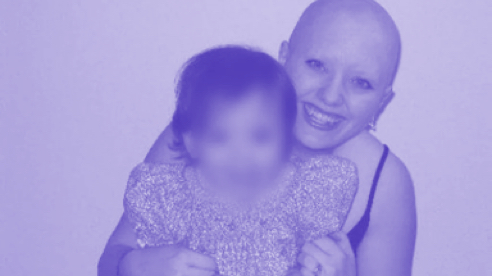
Who is Hope?
Share this episodeSEASON 01 | EPISODE 02Who is Hope?We delve deeper into the story of Hope Ybarra, a young mother whose family discovers she’s been faking her eight-year-long battle with terminal cancer and begins to suspect her own health isn’t all she’s...

What’s in the Water in Tarrant County?
Share this episodeSEASON 01 | EPISODE 03What’s in the Water in Tarrant County Andrea speaks to Deanna Boyd, the crime reporter who broke the Hope Ybarra case and discovers that Hope's was one of many Munchausen By Proxy cases in Tarrant County that Deanna...
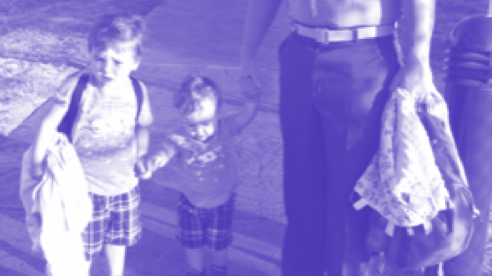
Nobody Would Believe Me
Share this episodeSEASON 01 | EPISODE 04Nobody Would Believe MeAs we learn from Detective Mike Weber, the father in a Munchausen by Proxy case can be the most important ally--or the biggest obstacle--in protecting child victims from abuse. Andrea gets...
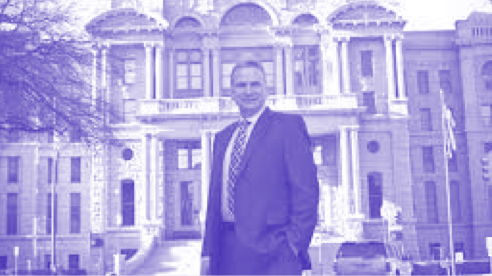
Nobody Would Believe Me (Part Two)
Share this episodeSEASON 01 | EPISODE 05Nobody Would Believe Me (Part 2)As we learn from Detective Mike Weber, the father in a Munchausen by Proxy case can be the most important ally--or the biggest obstacle--in protecting child victims from abuse. In part...
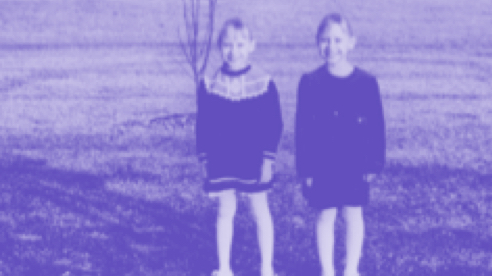
The Blast Zone
Share this episodeSEASON 01 | EPISODE 06The Blast ZoneAs Andrea contemplates what the future looks like for survivors of Munchausen by Proxy, she gets an unexpected message from two young women who’ve lived it. After appearing with Marc Feldman on a podcast,...
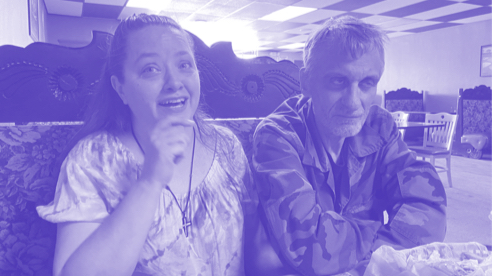
There’s Hope
Share this episodeSEASON 01 | EPISODE 08There's HopeAndrea has made an intense connection with Hope Ybarra's family, and asked experts, doctors, and the detective so many of her burning questions about Munchausen by Proxy. But she's become increasingly...
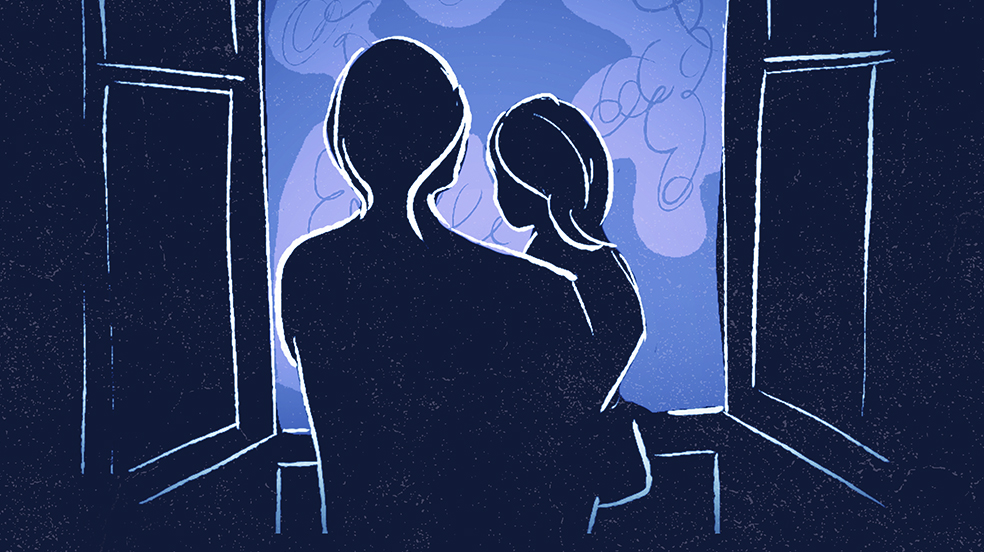
Blunt Force Instrument
Share this episodeSEASON 02 | EPISODE 01Blunt Force InstrumentMeet Andrea Dunlop, accomplished novelist and mother, as she embarks on a journey to understand the series of events that tore her family apart. In the first episode, we learn how Andrea first...

What Do We Do About Brittany?
Share this episodeSEASON 02 | EPISODE 02What Do We Do About Brittany?Heather Harris was one of many friends who was concerned about Brittany’s desperate need for attention for her daughter’s medical issues, and her inconsistent reports about Alyssa’s eating...

Where There’s Smoke
Share this episodeSEASON 02 | EPISODE 03Where There's SmokeDetective Mike Weber dives into the digital rabbit hole of Brittany’s online activity and makes a discovery so shocking it turns his investigation on its head and reveals the depths of depravity...

All In
Share this episodeSEASON 02 | EPISODE 04All InIn this season of Nobody Should Believe Me, we've heard from Sheriff Bill and Laura Waybourn about their concern for Alyssa- who was a distant family member of theirs. Now, we take some time to get to know this...

Tangled
Share this episodeSEASON 02 | EPISODE 05TangledWe hear more about Alyssa’s turbulent journey to become a Waybourn, as the family fights through a system that doesn’t know how to deal with medical child abuse. The Waybourns face the daunting task of...

The Trial
Share this episodeSEASON 02 | EPISODE 06The TrialYears after being separated from her daughter Alyssa, the Brittany Phillips case finally heads to trial. Dawn Ferguson, the prosecutor on the case elucidates the challenges of convincing a jury that a mother...

Megan
Share this episodeSEASON 02 | EPISODE 07MeganIn the wake of obtaining shocking public records about her sister’s case, host Andrea Dunlop decides to divulge the details of the second investigation into her sister, Megan Carter. Seated alongside Detective...

Only the Beginning
Share this episodeSEASON 02 | EPISODE 08Only the BeginningIn the aftermath of Brittany Philips' conviction, Alyssa faces a daunting new reality: the path to recovery. The long-term physical and psychological effects of Munchausen by Proxy abuse cast a long...

Pandora’s Box
Share this episodeSEASON 02 | EPISODE 09Pandora's boxIn this gripping episode, we delve into the heart-wrenching account of Jordyn Hope, another survivor of medical child abuse. Taking a brief departure from Alyssa's story, we shine a spotlight on a far more...

Everything Everything Everything
Share this episodeSEASON 02 | EPISODE 10Everything Everything EverythingIn the finale of Season 2, we finally hear from the person at the center of our story: Alyssa Waybourn. Despite the immense challenges she has faced, Alyssa shines as a beacon of...
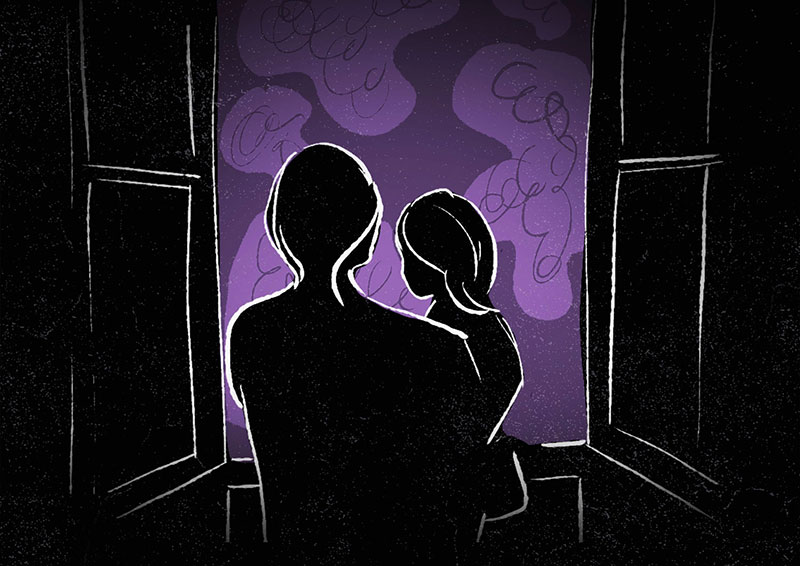
Special Report: Watching Take Care of Maya (re-release)
Share this episodeSEASON 03 | EPISODE 01Special Report: Watching Take Care of Maya (re-release) Warning: This content includes references to suicide and child abuse. If you or someone you know is having thoughts of suicide, help is available. Call or text...

Shelter
Share this episodeSEASON 03 | EPISODE 02Shelter As the Maya Kowalski case heads to trial, we dig into the massive trove of documents about this case and begin to unpack what we know about what really happened during Maya Kowalski’s fateful stay at Johns...

In a Heartbeat
Share this episodeSEASON 03 | EPISODE 03In a HeartbeatIn our third episode, we look at a central piece of the story that was left unfinished at the time of Beata Kowalski’s death: the police investigation into her for medical child abuse. Along with...

Retaliation
Share this episodeSEASON 03 | EPISODE 04RetaliationNote: This episode contains sensitive content related to child abuse and suicide. Listener discretion is advised. Beata Kowalski’s tragic death by suicide in January of 2016 is at the center of the $220...

The Women
Share this episodeSEASON 03 | EPISODE 05The WomenIn the flattened version of the Maya Kowalski story that has dominated the headlines, Beata Kowalski is a mother who fell prey to age-old biases against women. This story attaches itself to the well-documented...

The Believers Part 1
Share this episodeSEASON 03 | EPISODE 06The Believers Part 1In today’s episode, Andrea seeks an outside perspective on the controversial Maya Kowalski case. Laura Richards, host of Crime Analyst and cohost of the Real Crime Profile podcast, joins Andrea to...

The Believers Part 2
Share this episodeSEASON 03 | EPISODE 07The Believers Part 2As the Kowalski v Johns Hopkins All Childrens trial barrels forward, new information comes to light each day about what really happened to Maya Kowalski during her time in the hospital. In part 2 of...

Trial of the Century
Share this episodeSEASON 03 | EPISODE 08Trial of the CenturyWith a verdict in the case days away, host Andrea Dunlop unpacks some of what’s happened so far in the Kowalski v Johns Hopkins All Childrens trial with lawyer and trial consultant Jonathan Leach....

The Verdict
Share this episodeSEASON 03 | EPISODE 09The VerdictAndrea and special guest Bex (aka our Florida pediatrcian friend) process the shocking verdict in the Maya Kowalski trial. After 9 weeks of testimony, the jury awarded the Kowalski family nearly $300 million...

The Verdict Part 2
Share this episodeSEASON 03 | EPISODE 10The Verdict Part 2Andrea checks in with lawyer and trial consultant Jonathan Leach hours after the Kowalski verdict comes down. They talk about the judge’s decision to disallow testimony from the defense on medical...

Star Witness
Share this episodeSEASON 03 | EPISODE 11Star WitnessAs we continue to process the far-reaching implications of the shocking verdict in the Kowalski case, we take a closer look at Maya Kowalski’s testimony and what we know about her. She’s emerged as a...

System Override
Share this episodeSEASON 03 | EPISODE 12System OverrideWith the jury's stunning $242 million verdict in favor of the Kowalski family, host Andrea Dunlop looks at why this case has struck such a nerve on both sides of the political spectrum. She examines why...

What Now?
Share this episodeSEASON 03 | EPISODE 13What Now?Just when we thought the endless saga of Kowalski v Johns Hopkins All Childrens was over...it turns out it might only be beginning. In this episode, lead attorney for the Johns Hopkins All Childrens defense...

Media Circus
Share this episodeSEASON 03 | EPISODE 14Media CircusThis week Andrea examines how the harrowing and complex story of the Maya Kowalski case turned into a pop culture moment, and spread dangerous misinformation in the process. We continue our conversation...

The Trials of Dr. Sally Smith (Season Finale: Part 1)
Share this episodeSEASON 03 | EPISODE 15The Trials of Dr. Sally Smith (Season Finale: Part 1)In an exclusive interview with Dr. Sally Smith, host Andrea Dunlop travels to Florida to speak to the embattled child abuse pediatrician about her life and work and...

Bad Press (Season Finale: Part 2)
Share this episodeSEASON 03 | EPISODE 16Bad Press (Season Finale: Part 2)In the second part of our exclusive interview with Dr. Sally Smith, we discuss how the media coverage of her reached a fever pitch and turned her life and career upside down. We explore...

Dangerous Women (Season Finale: Part 3)
Share this episodeSEASON 03 | EPISODE 17Dangerous Women (Season Finale: Part 3)In the third and final installment of our exclusive interview with Dr. Sally Smith, she shares her side of what happened in the Maya Kowalski case, revealing how perilous Maya’s...

What Jack Knew
Share this episodeSEASON 03 | EPISODE 18What Jack KnewAs we prepare to launch Season Four next month, we’re revisiting the subject of Season Three—the landmark Kowalski v. Johns Hopkins All Children’s verdict, in which a jury awarded Jack Kowalski more than...

What Happened to Beata?
Share this episodeSEASON 03 | EPISODE 19What Happened to Beata?This week's episode delves into the intricate details surrounding Beata Kowalski's death, which was central to the Kowalski's lawsuit against Johns Hopkins All Children's, as well as the...

Kowalski Case Update with Ethen Shapiro
Share this episodeSEASON 03 | EPISODE 20 Kowalski Case Update with Ethen Shapiro Join Andrea as she delves back into the ongoing legal battle of Kowalski v. Johns Hopkins All Children's Hospital, with Ethen Shapiro, the lead defense attorney for Johns...
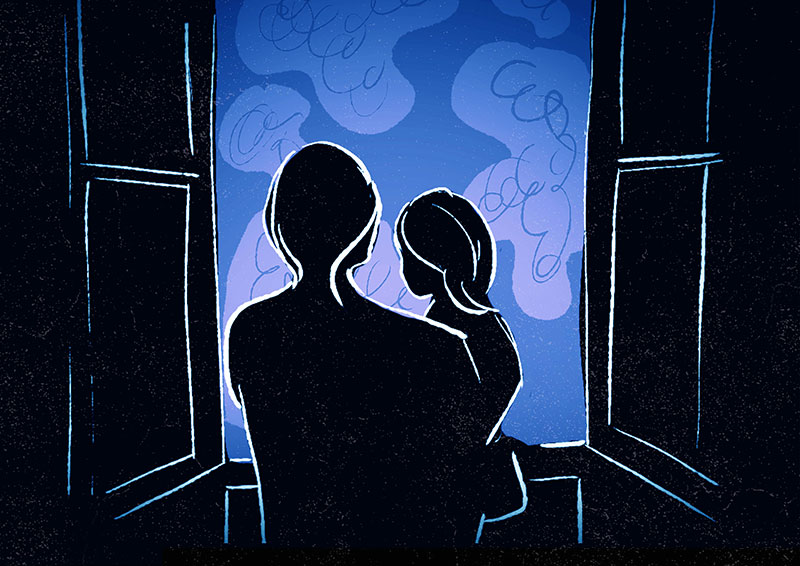
Welcome to Hutchinson
Share this episodeSEASON 04 | EPISODE 01 Welcome to Hutchinson Welcome to Season 4 of Nobody Should Believe Me! This season we are following the story of Jordyn Hope as they unravel the secrets of their childhood. After revelations that they were abused as a...

“I Brought You Into This World I Can Take You Out”
Share this episodeSEASON 04 | EPISODE 02 “I Brought You Into This World I Can Take You Out” While visiting their hometown, Jo reconnects with their older sister, Crystal, to have the deeply honest and heart-wrenching conversation their mother never wanted...

Not Without My Daughter
Share this episodeSEASON 04 | EPISODE 03 Not Without My Daughter As we dig deeper into Jo’s history, we tackle one of the many confusing aspects of their childhood: their paternity. We navigate the many twists and turns around the father figures in Jo’s...


